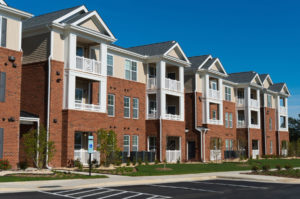
Own or Rent
One of the topics on last weeks BBC Radio Scotland property surgery was whether owning or renting in Scotland was the best option. We asked our Brian Gilmour to expand on his radio chat and give us his opinion on what was best for you.
Until the start of the 1970’s Britain was a country of renters. Both private and social we lived in rented housing. In the 1970’s the percentage of owner occupation in the UK broke the 50% of all Housing Stock for the first time. This accelerated in the 1980’s with the Right to Buy and was part of the culture that we are all better off owning our own home.
So Why Own?
By owning your home you have an appreciating asset.
You will be paying a mortgage but one day that will stop and you will be payment free
You can get credit against the value of your home
You will have an asset to leave the kids
Over the last 10 years the percentage of owner occupation has stopped growing (dipped down slightly) and the percentage of private rented stock has doubled from 6% to 12%. But since the right to buy the change was quite dramatic in Scotland. We have moved from 38% owner occupation in 1980 to 63% by the millennium. Since the recession it has settled to around 58%.
So why rent?
Provided you have a good landlord it is THEIR responsibility for management and maintenance. A good guide for example would be that you may be spending (averaging out 30 years of kitchens, bathrooms, decoration and repairs etc) around £800 a year on cyclical and reactive maintenance as a home owner, if you’re a tenant that’s your landlord’s costs. When an emergency happens at 2am most good lettings agents will have 24 hour emergency cover. One call and you’ll have it fixed – late night call out fees? Once again that’s your landlords issue.
Whilst in a good market you have capital growth as a homeowner however over the last 10 years that has been minimal. Owning a home with negative equity prevents you moving. The German economy is credited with a more flexible workforce because they can move easier for jobs. Also on the economic front if your financial circumstances change it is easier to move down to accommodate reduced income. Also if moving through to a different part of the country renting facilitates trying an area before settling down and finally there’s buildings insurance, factors fees, communal repairs in a block of flats are all the responsibility of your landlord.
So Which is Best?
It’s really what suits you and your lifestyle and that time and your attitude to the pros and cons set out above. Bangladesh has one of the highest private home ownership rates in the world whilst Germany and Switzerland have some of the lowest with 50% and 60% living in rented accommodation. The argument for rented accommodation is that it gives you a more flexible workforce so people can move. If you have an economic crash and people are living in negative equity and there are no jobs in that particular part of the country, it’s very difficult for those people to move on. Whereas rented accommodation makes it easier for people to move on.
The downside of renting and the plus side of home ownership is if you have 25-year mortgage, at some point you stop paying whereas if you’re in rental you pay forever. The other aspect of it, if I have a boiler problem at 11:00 on a Friday night, I’ve got to try and find a solution or I just wait until Monday morning. If you live in rented accommodation, you phone your letting agent, your letting agent will have an emergency contact number, that emergency contact person will come out, and that will be a cost of the landlord.
There are pros and cons to both – only you can decide


Recent Comments